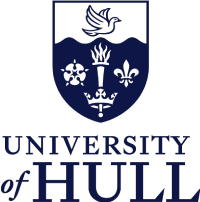Dr B Murray, Dr J Chin
No more applications being accepted
Funded PhD Project (European/UK Students Only)
About the Project
PhD studentship in Advanced Smart Materials (3-years full time)
The University of Hull invites applications from high-achieving students for a fully funded PhD studentship in the field of Advanced Smart Materials.
PhD Start Date: 29th January 2018.
Supervisor: Dr. Benjamin S Murray; [Email Address Removed], (0) 1482 465332. School of Mathematics and Physical Sciences – Chemistry.
Co-supervisor: Dr. Jia Min Chin; [Email Address Removed], (0) 1482 466408. School of Mathematics and Physical Sciences – Chemistry.
As the UK’s energy estuary, the Hull and Humber region has received significant investment in recent years to develop its potential for offshore renewable energy output. As part of this, the University of Hull is committed to achieving research breakthroughs for applications in offshore wind energy, thereby attracting investment and catalysing further economic growth in the region.
Polymer-based smart materials have attracted a huge amount of interest from both academia and industry due to their high processability and adaptability, which renders them easily applicable for many areas. We are embarking on an exciting project to develop next-generation polymer-based materials which possess self-healing and shape-changing capabilities for controllable surfaces. These advanced surfaces have exciting potential for applications in the wind energy sector and our focus will be on their use to reduce ice accretion.
Design and fabrication of icephobic surfaces with self-healing capabilities
Supervisors: Dr Benjamin Murray (Chemistry), Dr Jia Min Chin (Chemistry)
The project will develop novel polymers and polymer composites for the fabrication of advanced icephobic surfaces. An important goal of this project is to engineer damage tolerance into these surfaces, through endowing the constituent polymer-based precursors with self-healing capabilities, so as to extend their usable life times. Intrinsically self-healing materials often require heat or other external energy input to induce healing. This project will focus on the development of materials that can self-heal autonomously even at low temperatures, without additional energy input, thus avoiding the need for interference to effect repair. Working in a multidisciplinary research environment you will make use of our extensive materials characterisation facilities at the University of Hull. The research will guide new approaches in the development of novel icephobic surfaces and create opportunities for a step change in this research area.
The successful candidate will commence their studies within the recently opened George William Gray Centre for Advanced Materials at the University of Hull that connects the research of chemists, physicists, computer scientists, engineers and biomedical scientists. The successful candidate may also have the opportunity to spend time working alongside our industrial and academic collaborators throughout these projects.
Minimum Candidate Requirements
Students with a First or high Upper Second Class Degree in a relevant area (such as Chemistry, Materials Chemistry) are invited to apply.
For informal enquiries and discussion, email Dr Ben Murray ([Email Address Removed]) or Dr Jia Min Chin ([Email Address Removed]).
How to Apply
Please click on the link below for PhD in chemistry full time.
http://beta.www.hull.ac.uk/Choose-Hull/Study-at-Hull/Admissions/Postgraduate/How-to-apply.aspx
Funding Information
Full-time UK/EU PhD Scholarships will include fees at the ‘home/EU' student rate and maintenance (£14,553 in 2017/18) for three years, depending on satisfactory progress.

 Continue with Facebook
Continue with Facebook

